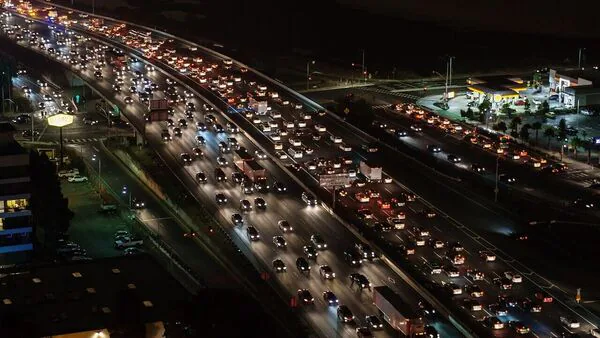Supreme Court's BIG Ruling: Motor Vehicle Tax Compensatory In Nature, 'Tax Should Not Be Levied If....'
The SC noted that if a vehicle's use or station is not in a public placce then its owner should not be burdened with motor vehicle tax for such period. Notably, the decision overturns a December 2024 ruling of the Andhra Pradesh High Court.
Also Read | US tariffs: CEA Nageswaran confident 'resolution to be found sooner than later' What did the Supreme Court say?SC Justices Manoj Misra and Ujjal Bhuyan in their vedict stated,“Motor vehicle tax is compensatory in nature. It has a direct nexus with the end use. The rationale for levy of motor vehicle tax is that a person who is using public infrastructure, such as, roads, highways etc . has to pay for such usage.”
Referring to section 3 of The Andhra Pradesh Motor Vehicle Taxation Act, 1963, (which deals with levy of tax on motor vehicles), the SC said the legislature has consciously used the expression 'public place' in this provision.
“If a motor vehicle is not used in a 'public place' or not kept for use in a 'public place' then the person concerned is not deriving benefit from the public infrastructure; therefore, he should not be burdened with the motor vehicle tax for such period,” the apex court ruled on August 29.
The bench said the taxable event under section 3 (which deals with charging provision and authorises the state government to impose tax on motor vehicles) is for when a vehicle is used or kept for use in a 'public place' in the state.
“Therefore, the tax is on the user or intendment for use of motor vehicle in a 'public place'. Thus, if a vehicle is actually used in a 'public place' or kept in such a way that it is intended to be used in a 'public place' then the tax liability accrues,” it said.
What is the case? Why did appellant move SC?The top court said when admittedly the motor vehicles of the appellant firm in this case were confined for use within the Rashtriya Ispat Nigam Limited (RINL) premises which is a closed area, then question of the vehicles being used or kept for being used in a 'public place' does not arise.
The bench said in this case, the motor vehicles in question were used or kept for use only within the restricted premises of RINL which was not a 'public place'.
"Therefore, the said vehicles are not liable to be taxed for the period the said vehicles were used or kept for use within the restricted premises of RINL," it said, while allowing the appeal.
The bench delivered its verdict on an appeal filed by a firm engaged in the business of providing logistic support since 1985.
It noted the firm was awarded a contract in November 2020 for handling and storage of iron and steel materials at central dispatch yard within Visakhapatnam Steel Plant, Andhra Pradesh, a corporate entity of RINL.
The bench said the company deployed 36 motor vehicles for plying within the central dispatch yard premises.
The firm told the apex court that the central dispatch yard was enclosed by compound walls and ingress and egress was regulated through gates where Central Industrial Security Force (CISF) personnel were deployed and no member of public has any right to access it.
The issue arose after the firm requested the Andhra Pradesh authority for exemption from payment of motor vehicle tax for the period its vehicles were confined and used within the central dispatch yard premises.
The bench noted this request was made in terms of section 3 of the 1963 Act.
Later, the matter reached the high court where a single judge held that the firm was plying its vehicles within the central dispatch yard which is not a 'public place'.
The single judge directed the state authorities to refund ₹22,71,700 to the company.
Thereafter, the authorities challenged the order before a division bench which set aside the single judge's order.
(With inputs from PTI)
Legal Disclaimer:
MENAFN provides the
information “as is” without warranty of any kind. We do not accept
any responsibility or liability for the accuracy, content, images,
videos, licenses, completeness, legality, or reliability of the information
contained in this article. If you have any complaints or copyright
issues related to this article, kindly contact the provider above.
Most popular stories
Market Research

- Invromining Expands Multi-Asset Mining Platform, Launches New AI-Driven Infrastructure
- Superconducting Materials Market Size, Trends, Global Industry Overview, Growth And Forecast 2025-2033
- United States Lubricants Market Growth Opportunities & Share Dynamics 20252033
- Building Automation System Market Size, Industry Overview, Latest Insights And Forecast 2025-2033
- Brazil Edtech Market Size, Share, Trends, And Forecast 2025-2033
- Australia Automotive Market Size, Share, Trends, Growth And Opportunity Analysis 2025-2033






















Comments
No comment